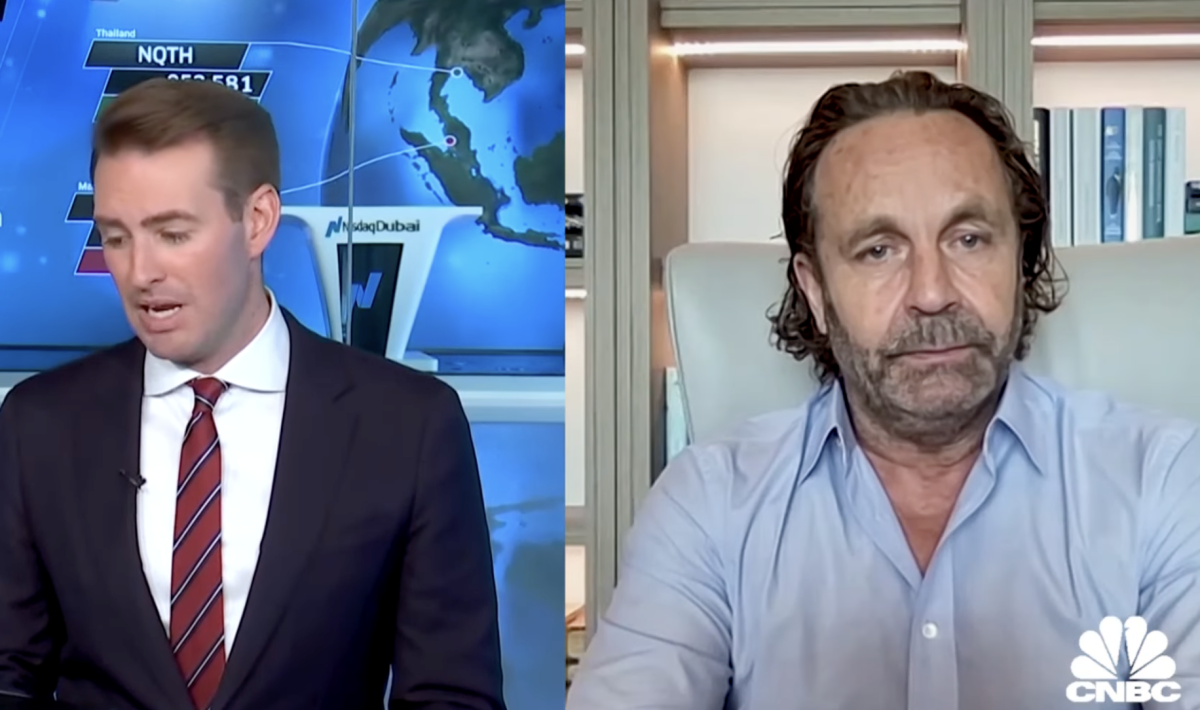Vista Global Chairman Thomas Flohr responded to the Financial Times article highlighting net losses, cash position, and debt at the private jet flight provider.

Vista Global Chairman and Founder Thomas Flohr answered back to this week’s Financial Times article, which highlighted the private jet provider’s increased debt, net losses, and cash position relative to customer deposits for future flights.
If we just mark to market the airplanes, the company would be highly profitable
Thomas Flohr, Founder and Chairman, Vista Global
Flohr told CNBC’s Dan Murphy, “None of this is new. All of the data was always available to our equity and debt holders. As you know, we went to the unsecured bond market 10 days ago, and we collected $500 million.”
Asked about $436 million in net losses over the past four years, as reported by the FT, Flohr said, “We as a company, both shareholders and bondholders, only focus on EBITDA, the cash creation of the company.”
He told the business channel, “The adjusted EBITDA was over $800 million in 2022. We never focus below the EBITDA line. The company has a very conservative depreciation policy where over 13 years, we depreciate our aircraft to zero. That’s, as a private company, a choice we are making as a conservative policy we have in place.”
However, he added, “[W]e might change it going forward.”
He said, “If we just mark to market the airplanes, the company would be highly profitable.”
Murphy then asked if there was a concern to have $134 million in cash compared to $831 million in payments from customers for future flights.
Flohr responded, “It’s not a problem. It’s a snapshot of December 31st. Think about when clients pay us up front, we need only about 22% of that to serve our clients for the direct operating expenses of those flights.”
He added, “Remember, those are deposits that are non-refundable. This is not money that clients can withdraw. This is not a jet card business, as described in the article. We have a subscription business model.”
Asked about the Ernst & Young auditors’ letter, Flohr told Murphy, “If we simply change our depreciation policy…to mark to market, we are turning a profit. We might consider this in 2023 if there is noise and concern around that. That’s very easy for us to resolve.”
He added, “Going forward, this infrastructure really allows us to grow the company from approximately $800 million EBITDA to $1.5 billion EBITDA. That is the investment cycle the company is going through…and given the demand levels for our subscription business model, we feel very confident as we’re adding.”
He said Q2 sales are on a similar pace to its Q1 trajectory, which it reported the day before the FT story broke.
Flohr concluded, “When you look at absolute debt, you always need to make it relative to the EBITDA that this infrastructure produces, and our EBITDA has actually grown more in relative terms than our debt, and hence the company is extremely comfortable, and so are the shareholders and so are the bondholders with the capital structure that the company has in place.”
As a side note, the terms jet cards, memberships, and subscriptions are used in the industry without a hard-and-fast definition.
It’s not quite like Champagne and sparkling wine, so to speak.
For example, Sentient Jet and NetJets sell jet cards that are non-refundable.
READ: What happens to your jet card and private jet membership deposits?
FlyExclusive offers memberships under the Jet Club banner, both of which are non-refundable.
Fly Alliance and Magellan Jets sell jet cards where the unused balance is refundable.
In fact, Flohr’s XO sells memberships that require $100,000 or $250,000 deposits but are refundable.
VistaJet offers two options.
The Program starts at 50 hours per year, and VJ25 starts at 25 hours.
Both require a three-year commitment, so yes, a subscription model.
Clients can get out of them by paying a cancelation fee.
However, clients are only required to deposit funds for the next year or quarter, so in terms of the subscription model, yes, VistaJet can expect funds to keep rolling in for the contract, and you can’t get your money back. You can only pay to exit the contract early.
